ASF 024: Leila Etaati interview
Introduction
Leila Etaati is an AI MVP, mentor, trainer, speaker and consultant. She spoke in some important conference such as Microsoft USA Ignite, Microsoft Data Insight Summit, SQL PASS, SQL PASS BA, Difinity. She has over 10 years’ experience working with SQL server. She was involved in many large-scale projects for big sized companies as SQL Server and BI consultant. She worked in Industries including banking financial, power and utility, manufacturing. Leila is Ph.D. of Information System department, University of Auckland, New Zealand. She is a lecturer of BI and Machine Learning courses. Leila is an active Technical Microsoft AI blogger for RADACAD.
This talk has taken place during MVP Summit 2019 in Redmond, WA (US) on 22 March 2019 (Friday).
Interviewers: Kamil Nowinski (T), Marek Matuszewski (T).
Audio version
Transcript
Marek Matuszewski: Hey, everybody. Thank you very much for joining our podcast, channels, Limcore and SQL Player. We are today at MVP Summit in Redmond together with an MVP in AI, in Data Platform category, Leila Etaati from New Zealand. Hi, Leila!
Leila Etatti: Hi! Really excited to be here. This is actually the MVP Summit. All of the friends in Data Platform and AI are here, so this is really exciting. And also lots of awesome sessions, new things happening in these products. That’s so cool. I’m really happy to be here.
Kamil Nowinski: Including the weather, right?
LE: Oh my god, the weather is so amazing. No snow, and…
MM: Program Managers, they ordered it exactly for us!
LE: They said that and that’s true.
MM: Leila, tell me how long it took you to come here to Redmond. Because initially, I thought when flying from Australia, you always have to go East, or West…? Wait a second, you flew West?
LE: Yes, that’s correct. Actually, I’m based in Auckland, New Zealand and there is a direct flight from Auckland to San Francisco, that is about 12 hours, and then from there to here, about 2 hours, actually. So together it’s about 15 hours. Not bad.
KN: Not so bad, I thought it’s even worse.
MM: I spoke today with guys from Brazil and it took them 25 hours.
KN: That’s bad.
MM: Think about the jet lag!
KN: There’s no jet lag at all.
MM: But what I saw last time on Facebook, on one of your accounts and Reza Rad’s… You are from RADACAD, you can tell people what RADACAD is. But tell me, you have a dog.
 LE: Yes, we have a big dog. 47 kg
LE: Yes, we have a big dog. 47 kg
MM: Who’s caring about the dog now?
LE: He is in dog care now, unfortunately. He is a big dog, and he is an American Akita. It’s 47 kg. He’s very fluffy, very playful and we really miss him!
MM: Akita, wait a second, it’s Japanese?
LE: Exactly, it’s a Japanese breed. Akita breed can be American Akita or Japoaneese Akita, Khersi (our dog) is American Akita. I can send the picture so you can actually share it with others. Yeah, he’s so cool!
KN: Tell us how long you’ve been living in New Zealand?
LE: About 7 years.
KN: If I remember correctly, last year you both bought a new house in New Zealand?
LE: Yeah, we have a new house in New Zealand. Actually about 45 minutes away from the city. It’s an area named Whangaparaoa. It’s a really nice area. It’s a bit far from city and the noise.
KN: Yeah, we’ve seen fantastic pictures of your house on Facebook.
LE: To be honest, New Zealand is really beautiful, so no matter where you have a house, there’s a lot of nice views there. I really enjoy living in New Zealand! But for sure Whangaparoa is one the nice area in Auckland.
MM: And tonight, actually today, depending on the time zone, we are in Redmond, in Microsoft’s headquarters, at the MVP Summit. So maybe some people don’t know what the MVP program is. Can you describe in your own words what the MVP program means to you personally?
LE: Sure, so the MVP program actually is a chance for people who are excited about different Microsoft products. They come and gather, and connect with the product team and the product team provide new features that they are going to deliver in near future. Also, the product team can get feedback about what these products or idea from MVPs. So the MVP program is a connection between customers, experts and the team. We (as Microsoft MVPs) work with customers, we present new features and exciting tools to people in sessions, we writing blog posts or other activity that we do, and then we receive the feedback from end-users, developers and other, so we are a kind of channel that provides these feedbacks to Microsoft people it. Also, it’s really good for us because we get to know what’s important about the product, what’s coming and also it helps us connect with really good friends. They are like family to us. For example, we have the SQL family, Data Platform family, Power BI family, so yeah, that’s a kind of second family.
MM: So we all know those two things, so firstly the expertise we can get from other people and of course the network. It is extremely interesting meeting people here in Redmond who you usually watch on YouTube or read blogs and then you can just shake their hands and…
KN: Approach, say hello, talk, raise some questions, it’s amazing.
MM: It’s a great opportunity that we can meet all together in one week. I wrote on Twitter a sentence that this week Redmond has the highest density of MVPs in the world.
LE: All of the MVPs from around the world, from Asia, Europe, South America, everywhere. People from Australia, New Zealand are here, so it’s really a reunion of MVPs. It’s really exciting to hear different languages MVPs from all around the world. People talk in German, French, it’s so exciting. I really love it.
KN: Leila, please tell us what you do on a daily basis, in terms of business with Reza.
LE: We run a company named RADACAD. I and Reza are co-founders of it. There are some people helping us to run the company as well. and both of us are Microsoft MVPs. It’s a small business so we do training and consulting on Power BI and Microsoft AI. Reza is more focused on Power BI, I’m mainly focused on AI and Microsoft AI. That doesn’t mean I’m not doing Power BI. I do, but my focus is actually beyond that. Beside that, we run several conferences in Auckland, we are running SQLSaturday, Global AI Bootcamp, Difinity and off course User Group meeting. Also, we write blog posts, every week we try to have a blog posts about new features in Power BI or Microsoft AI and also webinars, so yeah, we are quite busy.
KN: I’ve seen your blog and I’m still impressed that you’re keeping up the frequency of new posts.
LE: Thank you so much!
MM: But apart from all those community activities, blog posts, being at so many conferences, do you offer for your clients consulting services or training, or do you build ready products for them? What is your focus?
LE: Our focus is mainly on training. We also have consultancy people but that’s actually ad hoc consultancy, it’s not a continuous one from 8 to 5. It’s not like that. And most of them are remote. So we have customer all around the world. Sometimes, we even have customer meetings at the airport. So yeah, we’re used to that lifestyle. Or we write our blog posts sometimes at an airport, on a plane then publish it when we access to internet. However, some time we access to a good internet connection in flight like Air New Zealand flight from Auckland to Seattle provides a great internet connection…
MM: Very busy people.
KN: Apart from that, how often do you attend conferences across the world?
LE: I can say that we spend about 5 months a year in travel. That’s a lot.
KN: That’s like 40% of your time.
MM: And Kamil, have a look, despite such a busy schedule and travelling a lot, you’ve managed to write a book about machine learning with Microsoft technologies. You’re now writing a new book but before that tell us what your last book is about.
LE: The first book that I wrote is about R in Power BI in 2017. About 200 pages and it was about how you can do R and other things with Power BI. From visualization to machine learning. That’s a free book that’s available for everyone. Another one was again a free book that I published recently. It’s also free. It’s Azure Machine Learning, it’s about 100 pages. I talk about working with Azure Machine Learning Studio. And the third one that’s gonna be published hopefully next month is about machine learning with Microsoft technologies. So it looks at different products, from cloud to on-premises and what features we have, how we can do that. So, for example, it looks at how we can do machine learning in Power BI with R or Python or we can do that in cloud technologies like Data Lakes Analytics and also Databricks or Azure Machine Learning Studio or HDInsight or Spark. So I try to provide a view of different possibilities of machine learning regarding the technologies that we use.
MM: And what do you think about pre-built models, I mean the cognitive services from Microsoft?
LE: Oh, thank you for mentioning that! Also, one of the chapters is about cognitive services, how we can use it inside other tools like Power BI and also Bot framework, so I have twenty chapters already and the last chapter looks at when we should use each of them and for what purpose.
MM: What do you think from a business perspective: which of those cognitive services might be the most useful?
LE: You mean which services of cognitive services?
MM: Yes, because we have a lot of them, about 60 services.
LE: Yeah, I can say all of them are useful in any place, but I want to provide an example. For example, for text analytics, sentiment analytics, we can use it in Power BI to see how much our customers are happy about our products. Or for example another one that is about keyword extraction, we can find out what someone’s main purpose is, for example in email or product reviews. Also for the image detection, if you have data that is an image, you can classify the image in other apps. So all of them are useful in real business.
MM: Actually, you mentioned a very good topic, sentiment analytics or text analytics are very useful in campaign planning, marketing, brand management and social listening. Those are exactly the topics we support our clients in Cluster Reply, where I work for. And the other topic which I personally find very interesting is age research, for knowledge mining topics. It’s so powerful that you can… actually for all your documentation you have printed or manuals, extract those images, extract those tables and understand what is in them and make a search on top of that. And to make it even more attractive, there are pre-built models, there are pre-built tools. There are actually puzzles we just have to combine. It’s brilliant.
LE: Yeah, and it’s good because you have some customers who are business users. They don’t want to write any R or Python code. And we have people who deal with code, they want to do machine learning writing in R and Python. So for both of them we have different tools in Microsoft products, which is really cool. For example, for Power BI recently we have a version of doing AutoML and Azure Machine Learning Studio without writing code in Power BI services. So many people with a business background, without knowing anything about machine learning, they can do it.
KN: Yes, I’m happy that we are talking about R and Python because we know that recently Python came to Power BI. What is your opinion on R and Python, which language is actually more popular?
LE: That’s a tricky one actually.R is for statistical analysis, so all of the things that are related to statistical analysis, R is really good. Python is good mainly used for deep learning and image processing. So they have lots of good libraries on that. But there is always a fight between R people and Python, which one is better. But I think both of them can be useful.
KN: OK, let’s go back to the beginning. Tell us when and how you started working in the market. Which product was it at the beginning of your adventure.
LE: First, after graduating from Computer Science, I was a C# developer. I also worked with database, so we designed applications, business layer, access layer. And I found that I’m more interested in the database layer rather than interface layer, so at that time I started working as a database developer and also later on I started going into Business Intelligence, so I started with SSIS and SSRS and SSAS. And gradually, I got familiar with Power BI Desktop. This was really awesome. And actually, I started working with Power BI Desktop and that was really good. But in the meantime, I did a PhD in University of Auckland and I used their recommendation system and I was in the process of designing a recommendation system. So what I actually did was I created a tourist recommendation system using collaborative filtering and content base filtering algorithms and that was the point when I said “Oh my God, I think I love machine learning”. So I started self-learning all the time. R was so popular, and I started learning R and Azure Machine Learning Studio myself and gradually I’ve gone to other services. So that’s about 2014 when I started my machine learning / data science journey.
KN: OK, so from the very beginning it was Microsoft SQL Server, the database you mentioned?
LE: Yes. C#, SQL Server, BI, SSIS, SSRS, Power BI… Actually, Power Query, Power Pivots, then Power BI Desktop and also in meanwhile machine learning tools.
MM: That’s very interesting how you develop yourself, how you build additional skills on top of that, which is always easier if you have one skill and it’s always easier to put another skill on top of that. I want to ask about the new book that is coming. Can you tell us something more about what it’s going to be about?
LE: It’s going to published with Apress, the one that has 20 chapters about different Microsoft technologies. There is another book that I’m working on and it’s more about deep learning with Microsoft products. I’m still creating the table of contents for that one. That’s at a starting stage.
MM: And in the context of Microsoft Technologies, they evolve and develop very fast, there are many new features coming, especially in machine learning stack. What do you think is the most difficult part of writing such books about such new technologies?
LE: The update. So for example, in Power BI there are lots of changes, the same happens in machine learning. New technology comes and they do a great job so new things happen all the time. I should be careful about the changes that happen, so I can reflect them. For example in 2014 we just had Azure Machine Learning Studio. It was easy to catch up with new technologies. Now we have ML .NET, we have DevOps for Machine Learning, we have Azure Machine Learning Services and many other things. So it’s a bit hard to keep up with new things happening. That I think is the biggest challenge.
MM: Has it ever happened to you that you were almost ready with a chapter and then came back to it and said “OK, I have to correct it because an update came” or something?
LE: Yes, Databricks actually did with a previous book, so I was introduced to Azure Databricks last February and at that time the content had already been finalized, but I had to include Azure Databricks in my book. Or AzureML Workbench, there were some changes happening to that so I needed to update it.
KN: OK, so writing a book is one skill. Another one is how you can learn all those things. So reveal this secret to us: how can you do that, how do you find time for that?
LE: Oh my God, I think you guys are doing the same, so I think you know…
KN: But maybe everyone has a different approach to it.
MM: Has their own secrets.
LE: For me, I have different things. One is some inspiration to learn. Attending these conferences and seeing what’s new. And also, I tend to speak on specific topics. So I say “I want to speak on this topic so I need to go around and find out everything about what I’m going to talk about”. So that’s another motivation for me to learn. So when teaching others, I need to learn myself. And also, writing blog posts I need to dig deeper to know the whole area. And also these tools are like a game for me. I love to go and play with them, see how they work. Sometimes I cannot say it’s work. It’s more of a hobby for me. So that’s exciting.
MM: It’s also the topic we talked about before we got on air: know something about everything to have broad knowledge, the whole scope, the big picture but what is more important is to have one topic where you know everything about something. So know something about everything and know everything about something.
LE: Exactly. So I try to focus more on AI, so I do AI in Azure Machine Learning Services and Studio and others but also I’m trying to have a look on how we can do AI in Power BI, AI in PowerApps and Flow. I also have a look on Power BI in Data Platform also. I try to focus more on AI but I also know what’s happening in Power BI, PowerApps or Flow.
KN: My next question is: how do you prepare for a speech at a conference?
LE: The first thing is I provide an agenda, what I’m going to present. If it’s a demo that I’ve already created, I’m going to practice again to see if no changes happened because they may change the product sometimes. So I make sure it’s the same process. And regarding the speaking, it’s become kind of part of my life. There is always some stress. Even if you’ve spoken a thousand times, you have some stress. But I love being on stage, in touch with people. That motivates people to learn and use that product and provides lots of energy for myself. So I really love that.
MM: You said that you make so many speeches, you have less time because of it but do you still have time for clients to give them services, to provide with training? Are your and Reza Rad’s clients big companies, partially departments or groups of people, or rather individuals worldwide who have similar interests to you but are at a very early stage?
LE: Both, actually. We have big clients who need some advice on the product development that they have. Or they come to our training on Power BI or Machine Learning. Also, we have some people who are good at those things but they need some more advice on the development. So both, actually.
MM: Do you already provide training on Databricks or are you not ready yet?
LE: Actually, I provide it in my trainings. I have a 3-day training about machine learning in Azure products. That includes machine learning services and also Databricks in that. But there are other possibilities that I didn’t cover yet, but machine learning – yes.
MM: Because as we all know, Databricks is developing so fast, it’s changing. I can tell you, with Cluster Reply with have a project with one client together with Databricks Program Managers who are adjusting Databricks itself just to perform the queries that the client required.
LE: Databricks is awesome, I like it. It’s so good, there are lots of enhancements happening.
KN: What do you think about DevOps in your area. Do you think customers are ready for that or DevOps itself is ready in that area, services like machine learning for Databricks, Azure, other services?
LE: I’m actually not a DevOps expert but regarding machine learning, yes. Because machine learning uses lots of algorithms and lots of libraries and different data sets so it’s definitely one of the needs, if you want to look at machine learning in production stage. That’s a really great process happening in Microsoft Technologies regarding that. Lots of things happening. I cannot talk about them due to my NDA but great things happening.
MM: Maybe you mean the new TFS service? [laughs]
KN: Mainly about the process, how to deploy exactly and go live for production.
MM: It’s a joke.
KN: What hints would you give to young people who would like to start working in the IT market, whatever area?
LE: I think it’s a good idea to be in touch with the community. Volunteering different conferences, being in touch with the people who attend the sessions in that area, looking for what excites you. Anything that makes us excited and we see “Oh my God, I love this”, we can be really good at it. So love and excitement about one topic can help us be good at that, earn money and everything.
MM: Would you then say that you work 24 hours a day or you don’t work at all? You know what I mean?
LE: To be honest, sometimes I cannot distinguish exactly between work and hobby. I don’t know if what I’m doing is a hobby or work. Mostly when I’m writing blog posts or speaking, I say “I didn’t do anything today!” I did for example a webinar, I wrote a blog post but I feel like I didn’t do anything because I always imagined that work should be kind of very frustrating but actually it’s not.
KN: So you’re not having to think about your work-life balance? Because it’s mixed in one box, right?
LE: Yes.
MM: Actually, my mother told me when I was little: “Marek, find something that’s fun for you, that will be your passion, and you will not work a single day in your life”.
LE: Yes, she said it well, that’s the perfect one-sentence explanation. You’re right.
KN: On one hand it’s true but still, it still counts as work, so…
LE: Yeah, sometimes we have some problems, for example with customers but still, some of the customers are also really excited about what they’re doing so their excitement transfers to myself. So I feel lots of energy to help them. Also, I have lots of students, I do lots of mentoring. We have lots of people who start a job, a new start-up and they want some advice. So we also allocate some mentoring time as free for them. Or for universities. I’m also in touch with some universities. For example, they used to teach students about SQL or BI stuff. Now, they’re moving towards machine learning. So I also help them through developing, so that’s also really exciting. I didn’t earn money at that time but I really enjoyed it. It’s kind of my hobby.
MM: I have a question to both of you actually because we wanted to make it a discussion: have you already met in your career or work environment millennials? How do they approach their jobs, tasks? What about their patience in achieving something? You know what I mean?
KN: Yes, I think it depends on the country. I’m originally from Poland but I’ve lived in the UK since 2015 so I think it’s totally different. What I see in Poland is much more different from the UK. From my current perspective of the client I’m working for, I think young people right now, they kind of have a different approach to private life and work. They really focus on work in terms of business working hours but also they really want to live their private life, so it’s very important for them to distinguish these two things, two areas apart. I think it’s good.
LE: Yeah, I have the same idea.
MM: What I was mentioning is, to be honest, from the perspective of time, what we have right now, about the technologies which we are developing, what I meant about millennials is that actually, to be honest, I wish I was a millennial, I wish I was born later. You know why? Because today, it is so easy to get knowledge, which actually is everywhere.
KN: That’s true, but you were already born much later than me so… [laughs]
LE: We can do face recognition to see that!
KN: I did! And it lied about my age, but I’m happy because it showed that I’m 33 years old, which is not true, but OK, let’s not go into this topic. I wanted to say that when I was learning new things, going to school etc., there was no fast Internet, no Google at that time. I’m not sure if you remember those times…
MM: You know what I mean, it was more difficult, knowledge wasn’t so accessible as it is today.
KN: It was really hard to find any materials if you were looking for something. It was really hard. I still remember that I spent days searching in many different search engines when there was no Google. It was very hard.
MM: Leila, what does the sentence “Sharing is caring” mean to you?
LE: You mean about the community? That’s actually really helpful. Let me provide an example. When I was exploring, using cognitive services in Flow, I got stuck in the connection between OCR and PowerApps. Actually, I searched everywhere, I searched YouTube and I found a really great SharePoint person in Christchurch. He does a lot of these things. So because of him I was able to connect that. He shared something publicly with everyone on YouTube and then I could actually use it. And I always recommend it in my blog posts and sessions. And I add something to that, add other things. He shares something with me, I add to it, I share it with others, I write more blog posts. That helps people. I think it’s good.
MM: What I personally think about this topic is that contributing to the community and helping other people solve issues actually firstly makes me happy but also develops myself.
KN: Absolutely, yes. That’s why I’m since… I don’t even remember when I became part of the community, part of a local group in Wrocław, Poland. I started helping as a volunteer at the biggest conference in that part of Europe, which is SQLDay. It was other things, other activities, then I started my own blog. All those activities consume a lot of time but I still happy to do that because I know that people can learn something new. I can learn something new because when we’re talking, that’s fine, but when you record something and publish on the Internet, it will stay there, so you need to be careful what you write and you should double-check what you write about, and then you need to learn. If not from scratch, you need to at least refresh your memory, refresh your knowledge, double-check everything, not to share wrong things.
MM: Leila, when are you coming to Germany, to my Microsoft AI user group?
LE: Oh, I’d love to! I’m looking forward to that, so let’s see in the future, in the coming year. I’d definitely love to come, absolutely. Thank you! And also, I’d really like to have you guys in New Zealand, in Auckland and for Difinity.
KN: I’d like to come sometime. Maybe not this year but maybe next year, who knows.
LE: Sure! The weather is really nice in February and that’s a perfect time to be in New Zealand.
MM: What is the weather like in New Zealand in February?
LE: It’s our summer so the weather is perfect for everything. This year, after the event we went fishing with Charles Sterling and many other friends there. That was so fun actually, you should come!
KN: Last time, because we met previously in London at a local group. I asked you about the conference and you told me, I don’t remember when it was exactly, but I remember that the call for speakers started very early and closed very early as well so that was a problem for me to raise that topic and plan in advance.
LE: You’re right. So maybe we need to advertise more on that. And also because we need to provide the session so people can see and register. And the attendees are really happy about the quality of the sessions and they’re already happy about the speakers. They’re looking for all of them and new ones actually.
KN: You have a lot of MVPs at your conference as far as I remember.
LE: They help us, they are great. Thanks to them.
KN: At the end of our great conversation, could you tell us where we can find you and Reza and how we or someone else can contact you or ask about something?
LE: Our Twitter, that’s me, it’s @leila_etaati. And also through our email: leila@radacad.com and reza@radacad.com and @RezaRad on Twitter. Also on LinkedIn. We try to be responsive.
MM: Or simply Google: “Leila MVP”.
LE: Actually, we have another Leila. She’s an Excel MVP, so we have two Leila MVPs.
KN: Obviously, we’ll put all the links in the post.
MM: OK, Leila, Kamil, thank you very much for coming to this great conversation. I think it’s time for our next session at Microsoft’s headquarters in Redmond. Let us enjoy the last official day, actually, there are post-days, Thursday and Friday also at the MVP Summit in Redmond.
KN: Thank you very much.
LE: Thank you, it was great, thank you!
Useful links
Leila’s profiles: Twitter | LinkedIn | MVP
Difinity Conference: Website | Twitter
RADACAD: Website | Leila’s email
Leila’s books:
– Analytics with Power BI and R (online, free book!)
– Machine Learning with Microsoft Technologies
Related events: MVP Summit
Bonus: Video!
You did not expect that, right? So do I. Marek was recording everything and we have got a video of this meeting too.
About author
You might also like
ASF 016: Chris Webb interview
Introduction Chris Webb is independent consultant specialising in Analysis Services, MDX, Power Pivot, DAX, Power Query and Power BI in general. He has been blogging about Microsoft BI for over
ASF 004: Mark Broadbent interview
Introduction Mark Broadbent. Very active member of #SQLFamily, loves communicate via social media. Organizer of the very first SQL Saturday in United Kingdom – in Cambridge. Holder of very prestigious
ASF 018: Mladen Prajdic interview
Introduction Mladen Prajdić is a Data Platform MVP from Slovenia. He’s been professionally programming for over 15 years, developing different types of applications in .Net (C#) and SQL Server, ranging

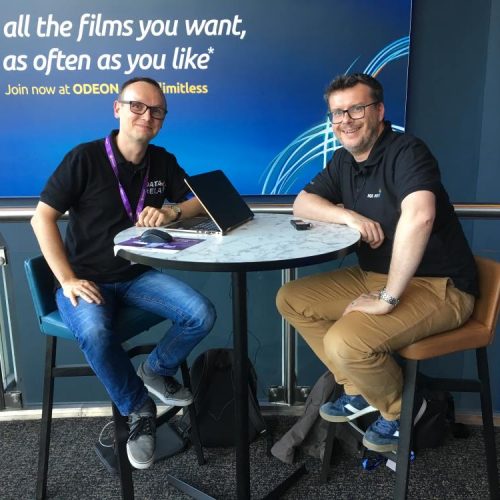
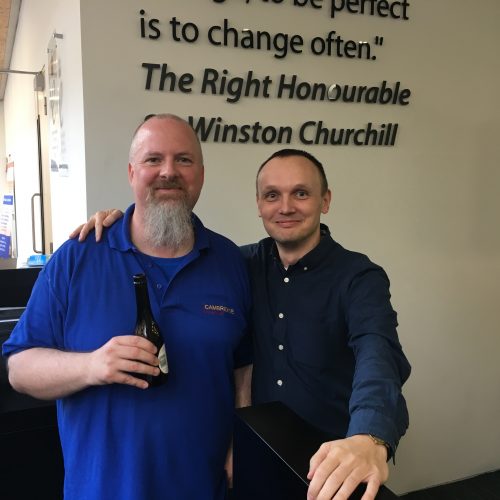
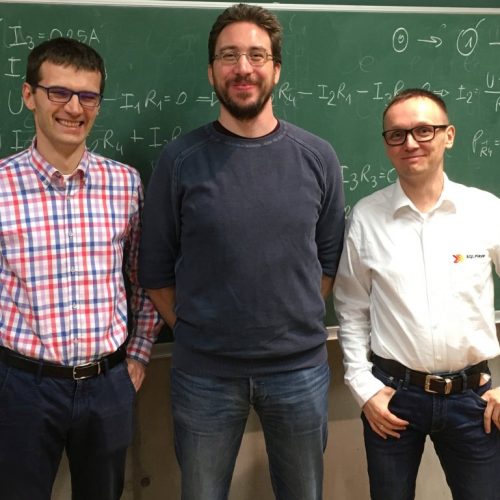
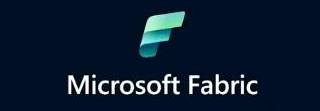

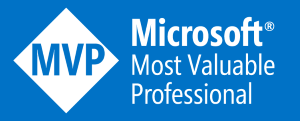

0 Comments
No Comments Yet!
You can be first to comment this post!